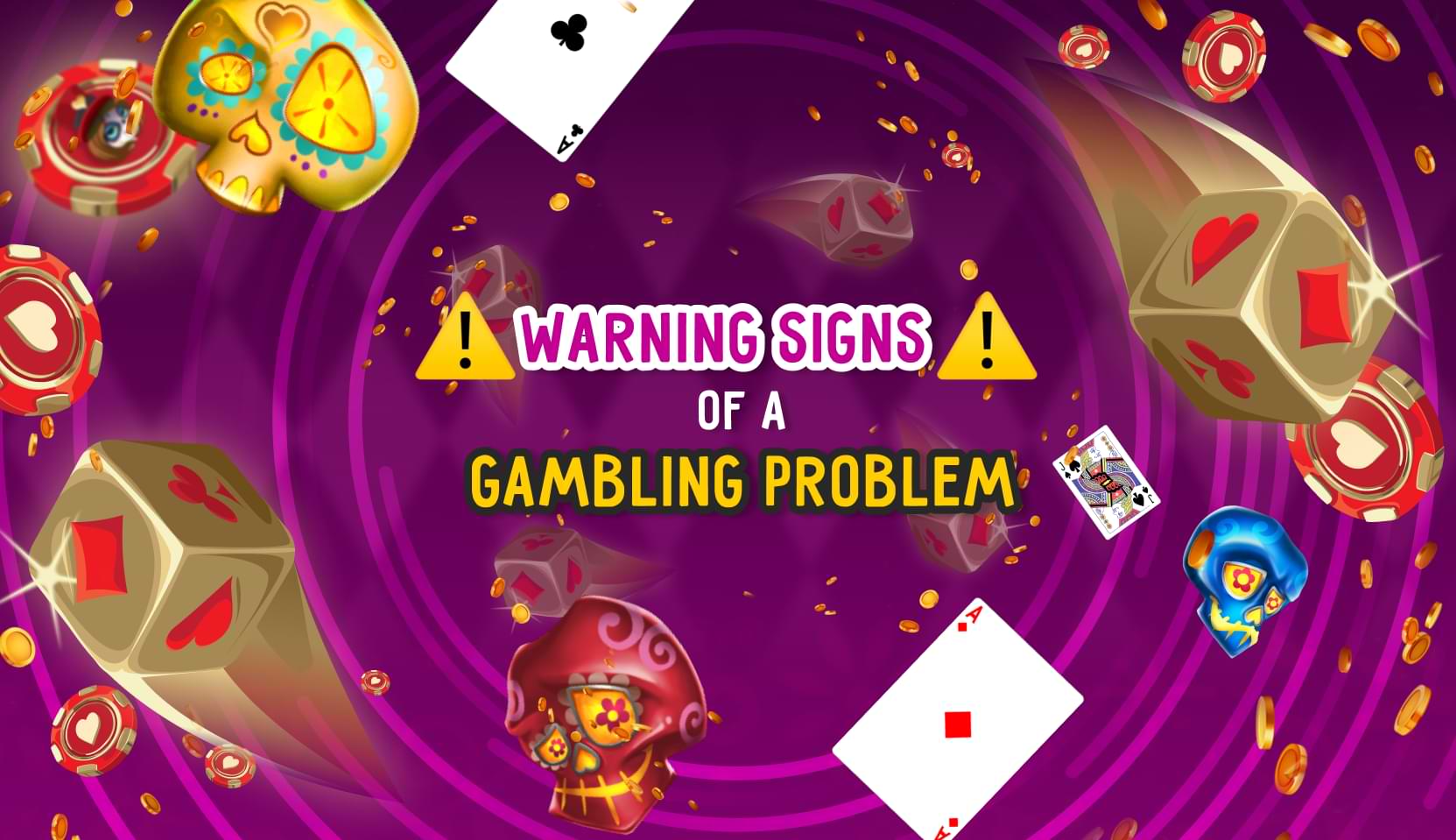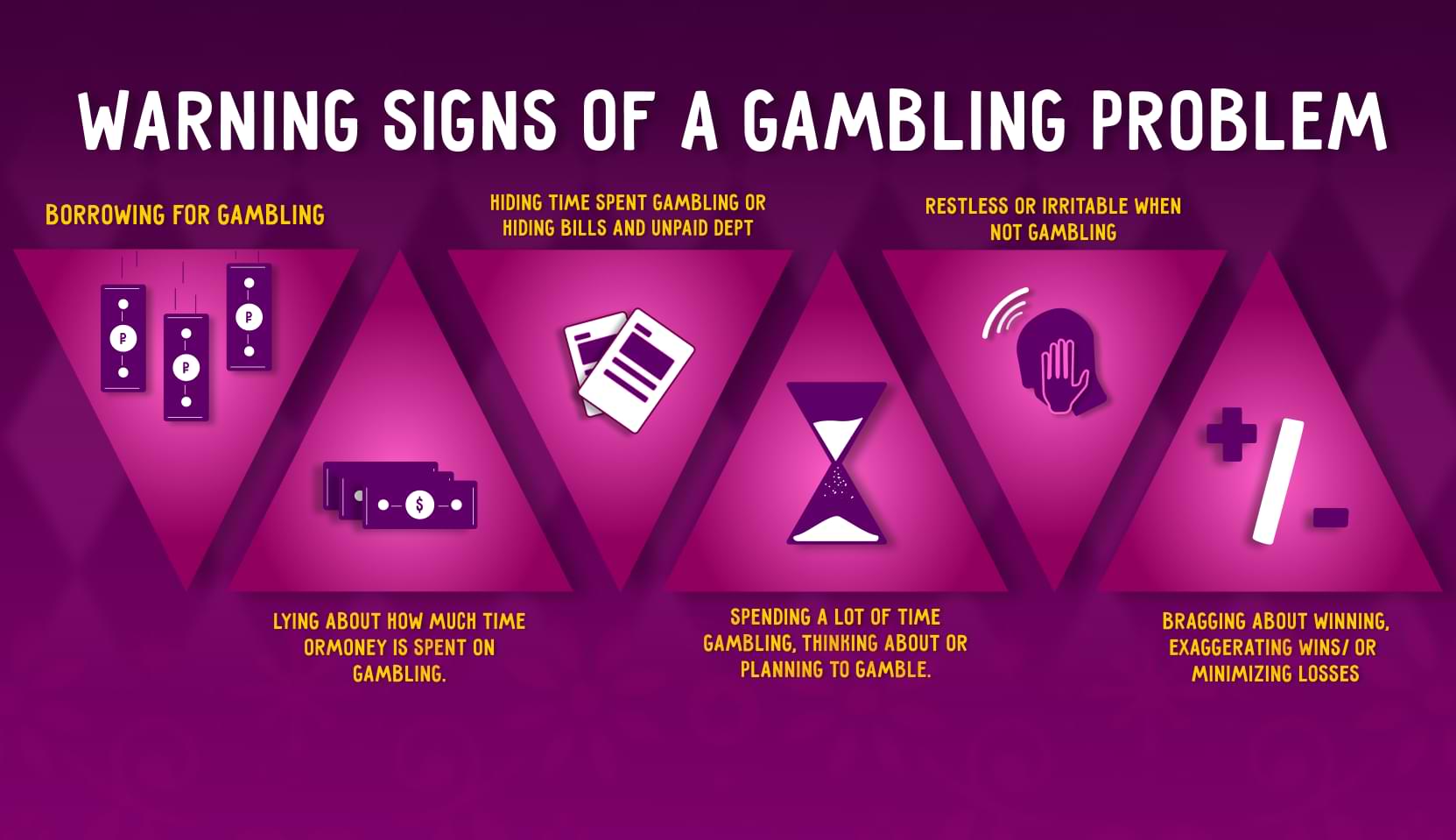Signs of Gambling Addiction

Gambling can be an exciting pastime, but for some, it can turn into a serious problem. The National Council on Problem Gambling stated that 2.5 million U.S. adults (1%) are estimated to meet the criteria for a severe gambling problem in a given year. Another 5-8 million (2-3%) would be considered to have mild or moderate gambling problems.
Knowing this, at SlotVibe, we are passionate about ensuring people know how to gamble responsibly. Recognizing the signs of gambling addiction early can make a significant difference in getting the help you need.
In this blog, we'll walk you through the symptoms, warning signs, and available treatment options for gambling addiction, so you can ensure that your gaming remains a fun and safe activity.
1. Understanding Gambling Addiction
1.1 What is Gambling Addiction?
Gambling addiction, also known as compulsive gambling or gambling disorder, is the uncontrollable urge to keep gambling despite its harmful effects. It's not just about enjoying a few bets here and there; it's when gambling takes over your life, leading to serious problems. When someone is addicted to gambling, they can't stop, even when they know it's hurting them financially, emotionally, and socially.
1.2 Why is it Important to Recognize Gambling Problems?
Recognizing gambling problems early is crucial because if left unchecked, gambling addiction can wreak havoc on a person's life. Financial issues are often the first sign, with people racking up debt or even turning to illegal activities to get more money to gamble. This can quickly spiral into relationship problems, causing fights, mistrust, and even breakups or divorces. Moreover, gambling addiction can take a toll on mental health, leading to anxiety, depression, and overwhelming stress. Spotting these issues early can help prevent these serious consequences and enable individuals to take back control of their lives before it's too late.
2. Symptoms of Gambling Addiction
There are many signs of gambling addiction. The more educated you are on what to look out for, the earlier you may be able to notice a potential problem. These are some things to look out for if you suspect you might have a gambling addiction.
a. A Preoccupation with Gambling
You may notice that you or someone around you has a change in behavior. Does their life now revolve around gambling? This may look like obsessing over current or past bets/gambling experiences, planning when they are next going to gamble, not focusing on anything else. If you notice that gambling is dominating yours or your friends' mind, it is a sign that gambling is no longer a casual hobby and it may be time to seek help.
b. Increasing Bets to Experience the Same Thrill
Increasing bets can be for a number of different reasons. It’s likely that due to past gambling experiences not going well, you or someone you know may be trying to recover losses, meaning they are continuously increasing bets in an attempt to win back lost money.
Here are some other signs or problems associated with this:
- 1. People might accumulate extra debt or use savings and assets to fund the gambling, which often leads to the one above.
- 2. Riskier Bets: Taking more significant risks with higher stakes to achieve the desired excitement.
- 3. Neglecting Responsibilities: Ignoring work, family, and social obligations due to the preoccupation with gambling.
- 4. Emotional Distress: Experiencing increased stress, anxiety, or depression when unable to gamble.
- 5. Relationship Problems: Conflicts and tensions with family and friends over gambling habits.
- 6. Dishonesty: Lying about the extent of gambling or hiding financial losses from loved ones.
- 7. Loss of Control: Feeling unable to stop or cut back on gambling despite the negative consequences.
c. Chasing Losses
Further on from above, chasing losses is a huge issue in itself and can result in a very negative cycle. The more you lose, the more you need to gain to recover from that loss, so many people often increase the risk with each bet.
d. Lying About Gambling Habits
Lying about gambling habits involves hiding the extent of one's gambling from friends and family, often to avoid judgment or concern. This can include downplaying how much time and money is spent on gambling, creating false stories about financial issues, or secretly borrowing money to gamble. This deceit can lead to mistrust and further strain relationships, making it harder to seek help and support.
2.1 Behavioral Signs
It’s important to keep an eye out for the following signs, as they may indicate a gambling problem:
- Neglecting responsibilities
- Borrowing money or stealing to gamble
- Restlessness or irritability when not gambling
3. Warning Signs of Compulsive Gambling

3.1 Emotional and Psychological Signs
Compulsive gambling can lead to intense emotional and psychological distress. Individuals often experience anxiety and depression, particularly related to gambling losses, as the stress of financial strain and the fear of continued loss weigh heavily on them. Feelings of guilt and shame are common after gambling sessions, especially when they have lied to loved ones or used money meant for other purposes. This emotional turmoil can exacerbate the addiction, creating a vicious cycle that's hard to break.
3.2 Social and Financial Warning Signs
Socially and financially, compulsive gambling takes a significant toll. Relationships become strained as trust erodes and conflicts arise from secretive or dishonest behavior. The financial impact is severe, with significant losses leading to mounting debts, which can result in borrowing money, selling possessions, or even resorting to illegal activities to fund the habit. This dual burden of social and financial stress further isolates the individual, making recovery more challenging.
4. Recognizing Gambling Problems In Loved Ones
To recognize gambling problems in friends or family members, looking for sudden secrecy about their activities and unexplained financial issues may be one place to start. If you have noticed a handful of the signs that we discussed earlier, then it may be time to intervene.
So how should you approach someone if you are concerned about them? Gambling problems can be a very sensitive issue. Often people will shy away from the topic for fear of being judged.
It’s important you are open-minded and avoid judgmental language. Always approach with empathy and understanding.
5. Help for Gambling Addiction

5.1 Self-Help Strategies
For those struggling with gambling addiction, there are several practical self-help strategies that can be effective. Setting gambling limits is crucial; this involves determining a fixed amount of time and money that you can afford to lose and sticking to it, which helps prevent excessive gambling. Avoiding triggers is also important; this means identifying situations, places, or emotions that prompt the urge to gamble and finding ways to steer clear of them or manage them differently.
5.2 Professional Help and Treatment Options
Professional help and treatment options are essential for many individuals dealing with gambling addiction. Therapy and counseling can provide personalized strategies and support, helping individuals understand the root causes of their addiction and develop healthier coping mechanisms. Support groups like Gamblers Anonymous offer a community of people facing similar challenges, providing mutual support and accountability. Additionally, medication options can be explored with a healthcare provider to address any underlying mental health issues, such as depression or anxiety, that may be contributing to the gambling behavior.
6. Resources for Gambling Addiction
6.1 Online Resources
There are numerous online resources available to provide additional information and support for those struggling with gambling addiction. The National Council on Problem Gambling offers a wealth of information, including hotlines and counseling services. Local support organizations can also provide region-specific resources and assistance, helping individuals find the support they need within their community.
6.2 SlotVibe's Commitment to Responsible Gambling
At SlotVibe, we are committed to promoting responsible gambling and ensuring our players have access to the tools and support they need. Our self-exclusion options allow players to take a break from gambling if they feel it's becoming a problem. Additionally, we provide links to various support services, offering direct access to professional help and resources dedicated to combating gambling addiction. Our goal is to create a safe and enjoyable environment for all our players.
If you or someone you know needs help with gambling, be aware there are plenty of resources out there. If you or someone you know needs help, reach out to:
- https://www.gamblinghelponline.org.au/
- https://www.gamcare.org.uk/get-support/talk-to-us-now/
- https://www.mdproblemgambling.com/helpline/
Frequently Asked Questions (FAQs)
The first signs often include preoccupation with gambling and betting increasing amounts of money.
Yes, with the right treatment and support, many people recover from gambling addiction.
Approach them with empathy, discuss your concerns without judgment, and encourage them to seek professional help.
Setting limits, avoiding gambling triggers, and finding alternative activities can help manage gambling urges.
Yes, SlotVibe offers self-exclusion options and links to support services to promote responsible gambling.

